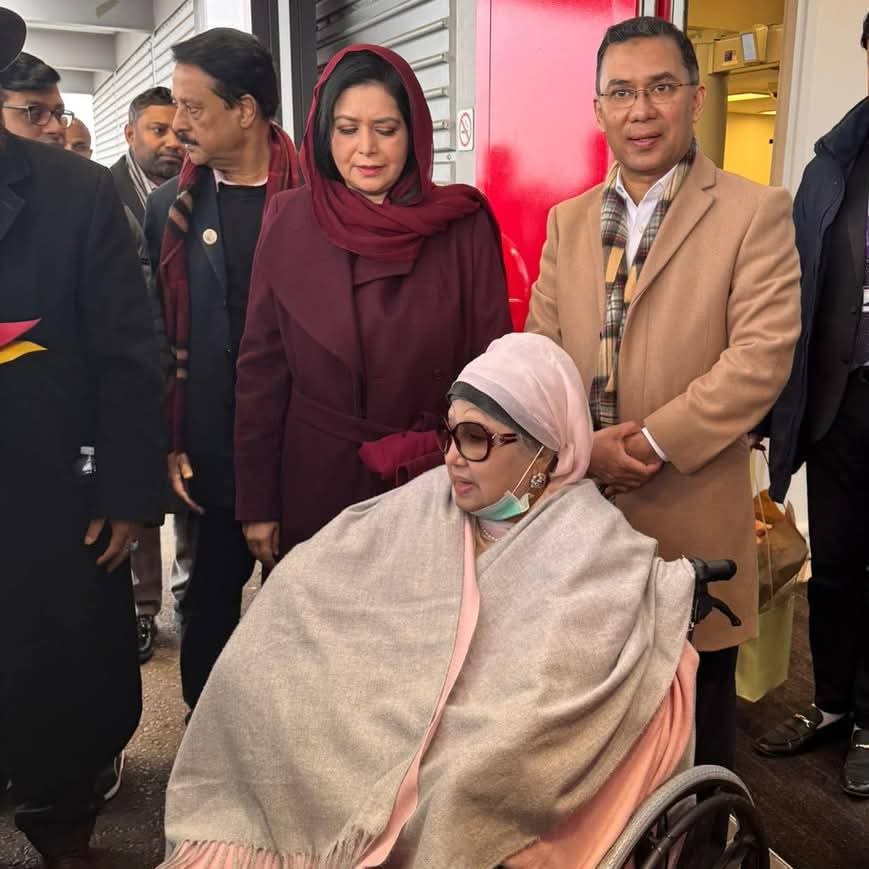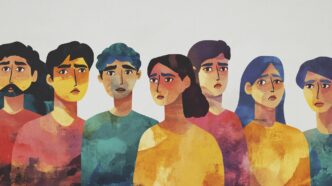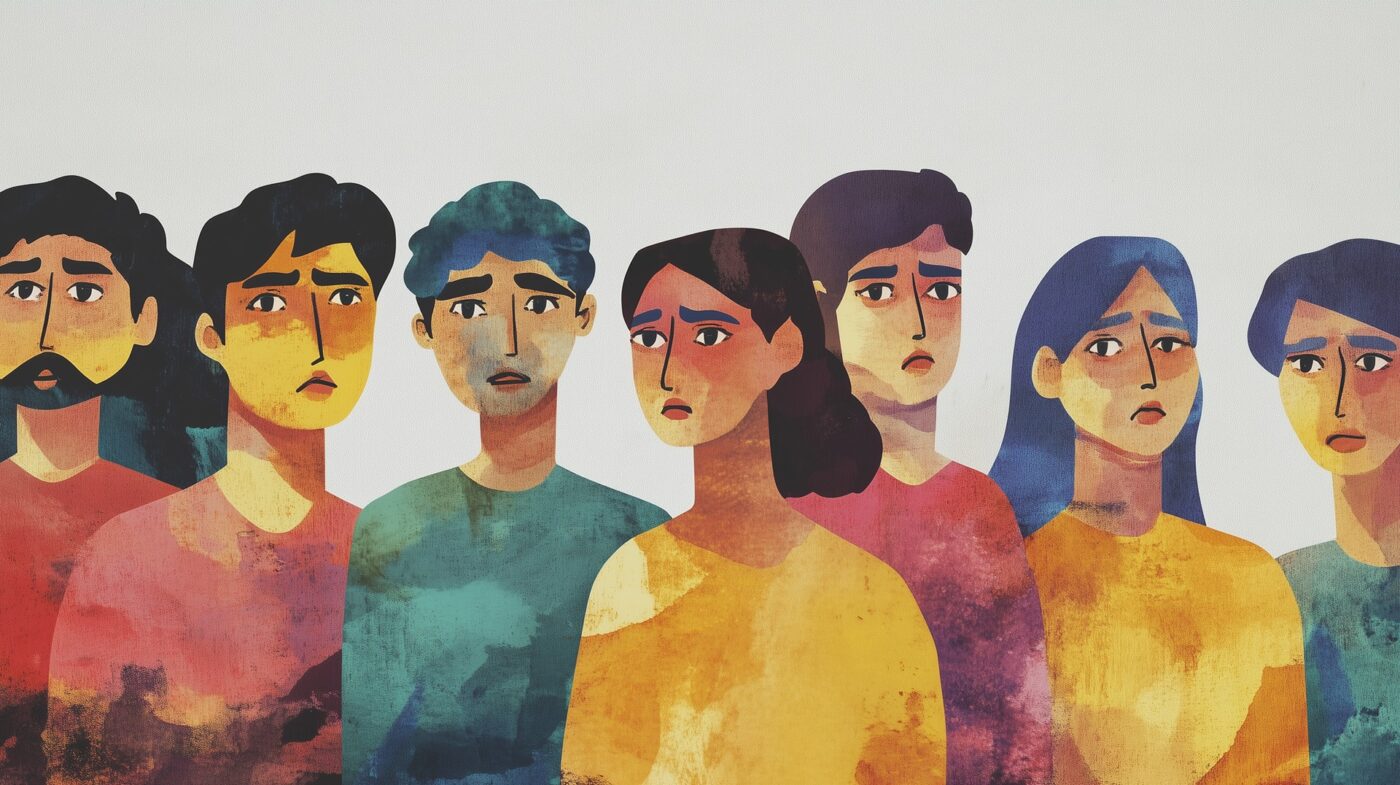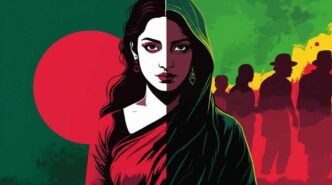Bangladesh underwent a major political shift in 2024 when the July Revolution overturned a regime that many had viewed as deeply authoritarian. Young people, many involved in student activism, played a pivotal role, risking their safety to demand greater accountability and integrity in public office. In the days and months that followed, their determination inspired citizens from all segments of society, prompting hopes for a profound political and social transformation. At first, this optimism felt real, supported by large public demonstrations, extensive digital engagement, and a widespread sense of solidarity. Families discussed the possibility of fair governance, improved job prospects, and broader social justice reforms that could place ordinary people at the center of national policy. Even individuals who had never been attracted to politics began joining community forums and volunteer projects aimed at elevating marginalized voices and ensuring that no one was left behind. Then, the youth outlook about politics in Bangladesh was the highest it had even in decades.
Yet this initial excitement is now fading. Many of the youths who toppled what had seemed like an unshakable system struggle to maintain their earlier fervor. While some remain dedicated, many more feel drained or frustrated by the slow pace of genuine change. A familiar pattern appears to be resurfacing, with entrenched interests resorting to old methods of influence. In the aftermath of the revolution, tactics like co-opting grassroots movements, orchestrating backroom deals, and funneling money to secure power have reemerged. This is disheartening because these very habits were precisely what led to the revolution in the first place. The question that arises is how to preserve the original spirit of that extraordinary uprising when so much of the political landscape seems ready to revert to the status quo.
One of the most troubling indicators is the fragmentation of coalitions that once stood united. Instead of forming a cohesive front committed to reforms, many activists have split into smaller factions, each pursuing a different agenda or forming alliances that conflict with the revolution’s overarching aspirations. The collective enthusiasm has not entirely vanished, but it has broken down into compartments that are significantly more challenging to coordinate. When a movement loses its unity, it becomes vulnerable to co-optation by better-organized forces that cleverly adopt the movement’s language while steering it in a different direction. This splintering leaves young Bangladeshis wondering how to regain momentum and preserve the focus on structural change that goes beyond merely swapping out one ruling figure for another. It highlights the complexity of embedding democratic principles in a society where hierarchical norms and vested interests have been deeply entrenched for decades.
A clear illustration of this complexity is the evolving story of Students Against Discrimination. During the revolution, this group captured the nation’s imagination by advocating for fairness and by envisioning a society free from bias in matters of class, religion, gender, and political persuasion. They attracted a broad base of supporters, including older community members who believed that ending discrimination in everyday life was crucial. By avoiding strict party affiliations, Students Against Discrimination seemed to embody the revolution’s most optimistic ideals: justice for all, transparent accountability, and a sincere commitment to assisting the marginalized.
Their events drew enormous crowds, their messages spread quickly online, and they appeared poised to remain a powerful force for change.
Over time, however, the group became bogged down in internal strife. Leadership disputes, accusations of growing too close to interim authorities, and conflicting visions over strategy tore at the organization’s unity. While some members insisted on total independence from existing power structures, others argued that forging strategic partnerships would yield incremental gains. These divisions caused confusion and drove away many of the supporters who had admired the group’s initial clarity of purpose. Gradually, an organization that had once represented the revolution’s moral integrity became a cautionary tale. Its momentum dwindled, and many young people who had relied on Students Against Discrimination for inspiration started looking elsewhere for a place to direct their passion. Though a few dedicated activists remain, the group’s influence is now only a fraction of what it once was. Its decline demonstrates a larger challenge that confronts revolutionary organizations: the need to balance principled activism with pragmatic actions, without losing sight of the original purpose that sparked their creation.

While Students Against Discrimination has faltered, Jamaat-e-Islami and its student wing, Islami Chhatra Shibir, have adapted to the post-revolution environment with surprising effectiveness. Historically criticized for rigid beliefs and divisive rhetoric, Jamaat is now working to position itself as a reliable alternative amid the instability that often follows a major political upheaval. In regions facing poverty and underdevelopment, Jamaat and Shibir have stepped in with social welfare initiatives that resonate with residents who feel ignored by conventional parties. They have also leveraged social media skillfully to showcase local aid programs, including distributing food, offering basic healthcare, and mediating community conflicts.
Many critics remain skeptical of Jamaat’s motives, pointing to its controversial record, but the group’s leaders present an image of evolving views. They claim they now focus on moral values and national unity, rather than ideological disputes. This framing appeals to young citizens who have grown weary of empty rhetoric and want tangible solutions that improve daily life. Jamaat’s strategy also includes micro-loans for local entrepreneurs, educational assistance for students, and demonstrations of their capacity to address urgent community needs.
Although many caution that Jamaat’s position on social and religious freedoms has not genuinely shifted, its organizational strength and consistent messaging make it a formidable contender for support among a populace that is frustrated by the sluggish pace of reforms. Some worry that the revolution’s steps toward broad inclusion will be undermined if Jamaat gains further ground, while others see them as essential players in a political landscape desperate for any hint of order.
Exacerbating this sense of ambiguity is the Bangladesh Nationalist Party (BNP), traditionally viewed as the main counterbalance to the Awami League. The revolution provided the BNP with a prime opportunity to redefine itself, move away from divisive tactics, and advance policies that would captivate the younger generation. Yet the party often defaults to familiar methods that mirror the behavior of those recently ousted from power. Large crowds that bring traffic to a standstill, chants that exalt figures rather than articulate reforms, and a reluctance to address pressing economic issues have contributed to the perception that the BNP is not delivering a genuinely fresh direction.
When supporters flooded Dhaka to bid farewell to Khaleda Zia as she left for medical treatment, their energetic demonstration clashed with public expectations for a more considerate form of politics. Instead of applauding the party’s display of loyalty, many people criticized the inconvenience inflicted on traffic, daily commerce, and emergency services.

It is also revealing that the BNP has yet to propose a coherent platform capable of exciting young voters who seek real gains in governance and economic development. Repeated references to the wrongdoing of past regimes do not automatically yield innovative plans for the future. While some continue to sympathize with the BNP because of the persecution it faced under the previous government, the party has not pursued decisive reforms to match the desire for more transparency, better education, and expanded job opportunities. Consequently, many among the youth who orchestrated the revolution remain unimpressed, interpreting the BNP’s conduct as the beginning of a familiar cycle of complacency.
Amid this turbulent climate, Muhammad Yunus stands out as someone who encapsulates both the highest hopes and the deepest vulnerabilities of Bangladesh. He is internationally renowned for pioneering the concept of microfinance, a development approach that extends small loans to those living in poverty. His work helped numerous communities attain some measure of economic independence. His global stature became a source of national pride, yet it also provoked the hostility of an Awami League administration that perceived his popularity as a challenge. The mounting legal actions under that regime seemed designed to undermine his reputation. Thus, it was a stunning twist when, following Sheikh Hasina’s resignation, Yunus was selected to head the interim government. Many viewed this outcome as poetic justice: a Nobel Prize laureate once targeted by the state was now entrusted with guiding the nation at a pivotal moment.
Since assuming this role, Yunus has emphasized social enterprises and community economic development strategies to tackle the enduring inequality that remains a primary concern. His ascent hints that Bangladesh may be ready for a more equitable model of governance, though daunting structural hurdles persist. Political corruption, long-standing nepotism, and latent tensions fueled by powerful factions or influential families still loom large. Yunus’s personal resilience, shaped through years of legal and political pressure, has earned him admiration at home and abroad, but his effort to restore faith in the political sphere will test the limits of what a single leader can achieve with a provisional mandate. Even though his approach is innovative, there is a real risk that deeply embedded interests could exploit the transitional period to recover their influence.
Nevertheless, amid chronic issues such as unemployment, high living costs, and vulnerable infrastructure, many hold onto the hope that Yunus’s leadership will encourage collaboration among diverse stakeholders. Civil society and youth groups that once felt sidelined now see in him a potential ally who might prioritize lawful and transparent governance. His appointment also indicates that the flame of the July Revolution still burns. If anything, it counters the assumption that Bangladesh must remain locked in repeated cycles of patronage and suppression. Having someone who built his reputation on grassroots economic empowerment take the helm shows that a different model of governance is possible. However, whether this shift leads to sweeping reforms will depend on cooperation across multiple institutions and social groups.
Despite these encouraging signs, Bangladesh remains caught between lofty aspirations and entrenched realities. Those who led the July Revolution sense the tension acutely. Some blame themselves for believing that toppling one government would magically resolve decades of deep-rooted corruption and cultural inertia. Others argue that revolutions are continuous processes that require unwavering vigilance. They point to local initiatives as the likely key to social renewal. While prominent politicians chase power at the national level, smaller collectives have been forming cooperative farms, opening health clinics, or introducing digital literacy programs, all of which yield real benefits for everyday citizens. These efforts do not attract the same level of media attention as major political rallies, but the practical impact on communities can be substantial.
At the same time, everyday struggles persist. Inflation continues to burden households, rural youth find few stable job prospects, and migration to overcrowded urban areas puts added pressure on precarious infrastructure. Environmental threats, from rising flood risks to mounting pollution, also demand urgent attention, yet they rarely command the focus of political debates in any meaningful way. Instead, major parties often concentrate on immediate strategic gains or trade accusations, leaving space for extremist voices or populist leaders to exploit the frustration of citizens by offering quick fixes. These promises may appeal in the short term yet undermine the revolution’s core principle of inclusion.
Consequently, Professor Yunus’s leadership serves as both a symbol of hope for renewal and a reminder that lasting transformation demands far more than a single visionary, regardless of his global prestige. The sobering example of Students Against Discrimination illustrates how swiftly a strong movement can dissolve under the weight of internal disputes and opportunistic alliances. Jamaat-e-Islami’s steady growth demonstrates the power of consistent grassroots work and skillful communication to attract supporters who have grown weary of political bickering. Meanwhile, the BNP’s inability to transcend its old patterns underscores the difficulties that entrenched parties face in adapting to the changing aspirations of the population.
Bangladesh stands at a turning point. The energy that propelled its young citizens to dismantle a longstanding regime persists, but it risks dissipating if the new political environment fails to cultivate it. Every stakeholder holds a piece of the nation’s future—activists, politicians, civil society organizations, and regular people who wish for a government that respects their dignity and fosters opportunities for all. Perhaps the greatest lesson of the July Revolution is the need for constant vigilance. Removing a single leader can never suffice; the entire political and cultural structure must evolve, from the smallest local councils to the highest offices of state. Otherwise, the same patterns of graft and oppression will inevitably reappear.
Ultimately, the nation’s trajectory hinges on whether Bangladeshis can unite around reforms that include all communities rather than granting special privileges to a select few. If the people remain determined, the ideas that once electrified the country could still define its destiny, allowing it to emerge as a place guided by integrity, fairness, and innovation. Should fatigue, division, or complacency win out, though, Bangladesh may slide into yet another cycle of disappointment, sowing the seeds for future unrest. The choice lies with those who brought about the July Revolution in the first place. If they can rally once more, this time armed with the lessons of the recent past, the promise of that exceptional moment may well become the enduring foundation for the Bangladesh they imagine.







